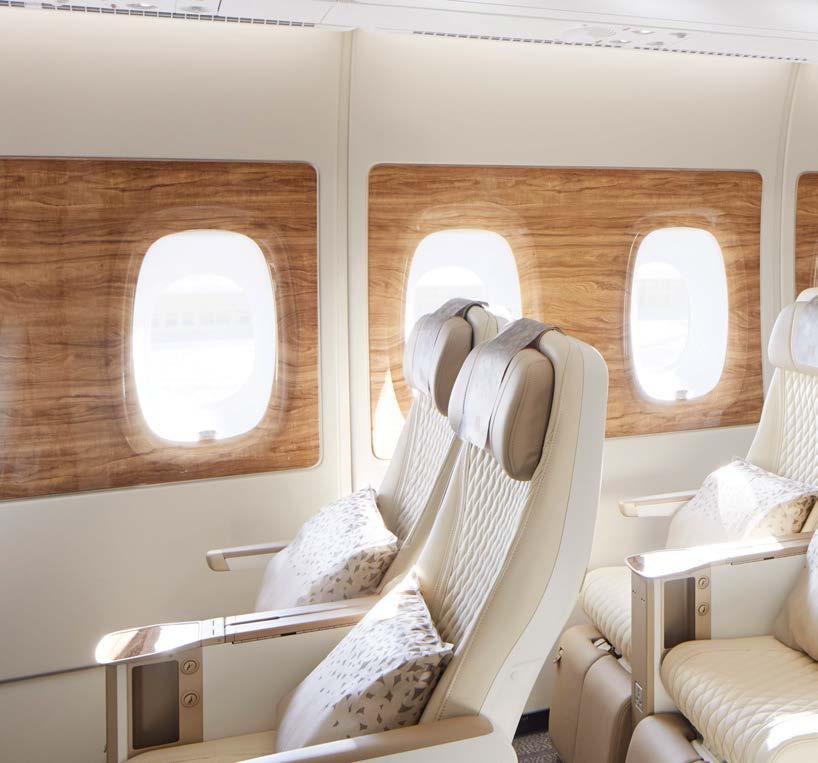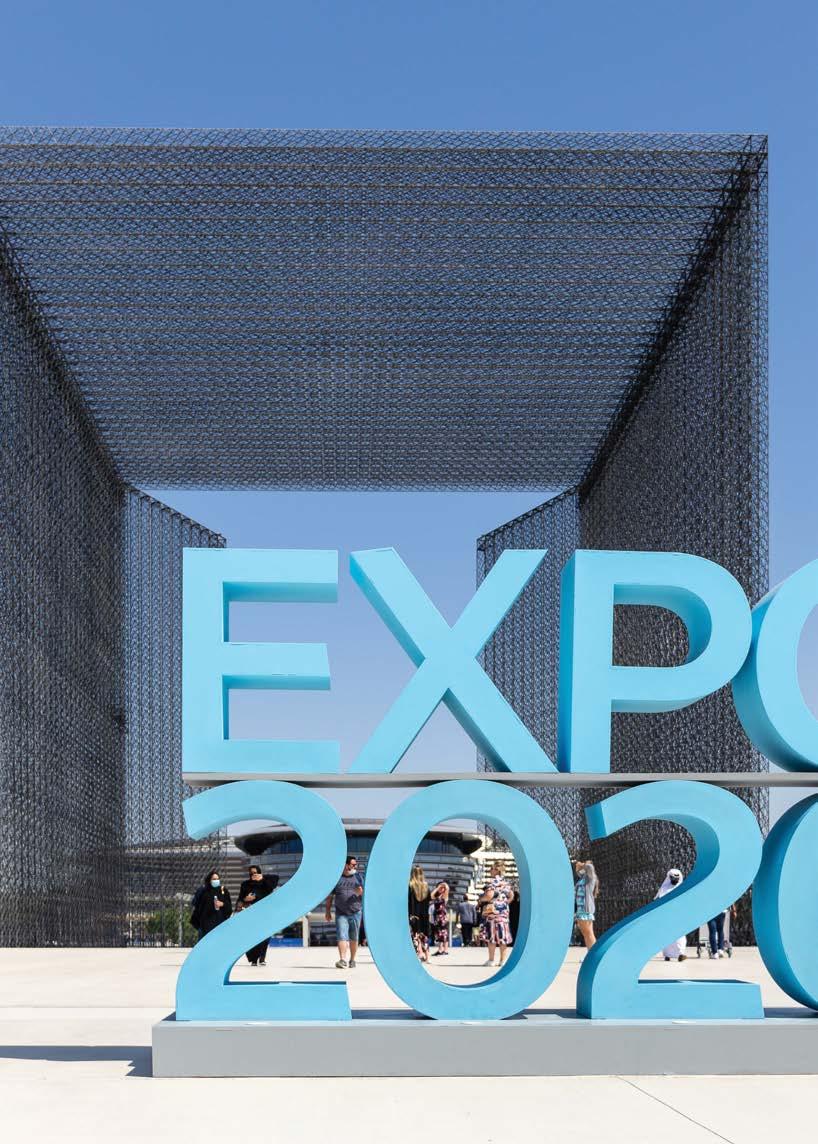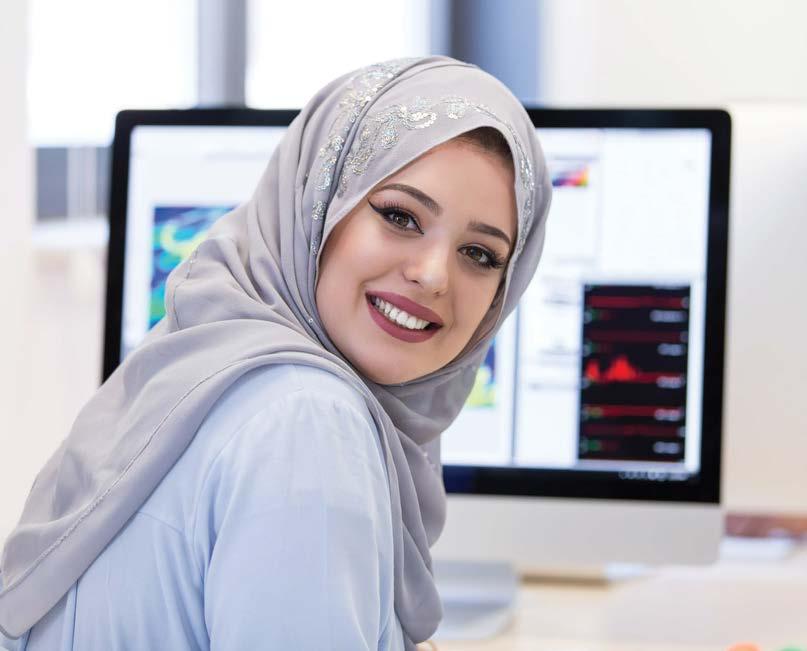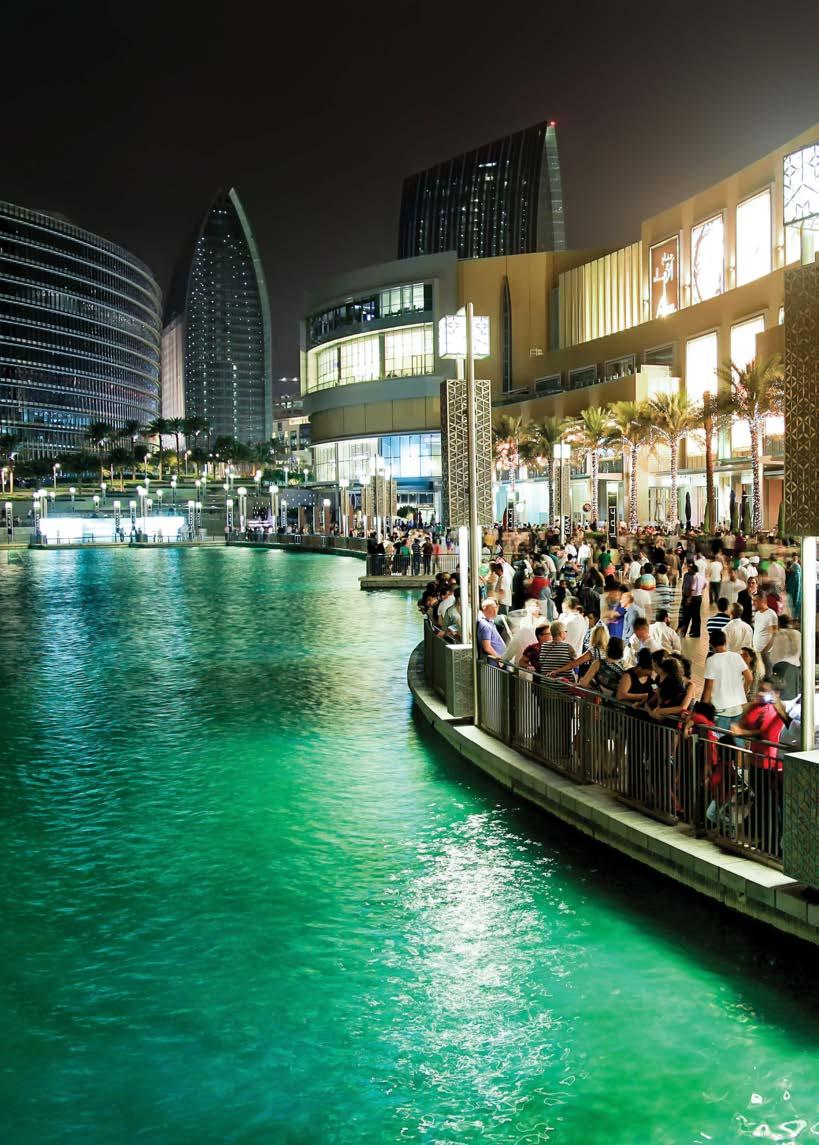
6 minute read
Smart City
INVESTING
IN THE FUTURE
Advertisement
The growing interest in the smart city and the need to solve global challenges has led to unprecedented innovation and technological advancement.
With the launch of a UAE Strategy for the Fourth Industrial Revolution and the establishment of a Ministry for Artificial Intelligence, the UAE has solidified its position as one of the most advanced regions for technological innovation.
The UAE’s leadership has positively embraced the potential for new technologies. In March 2021, the UAE launched its industrial strategy, Operation 300bn, a comprehensive 10-year strategic plan that aims to establish the UAE’s industrial sector as a success story in driving a sustainable economic model. More than 13,500 micro and small enterprises will benefit from financial and policy support through the newly introduced strategy, creating a subsidiary real economy.
Tech-savvy nations are defined not only by the support they provide to enterprises but also through their partnerships in research and innovation. The Abu Dhabi Advanced Technology Research Council, the first research council in the Middle East, was established to shape research and development for transformative technologies. The establishment of the Technology Innovation Institute (TII) aims to become a leading global research centre, dedicated to pushing the frontiers of knowledge. In so doing, it will place the UAE firmly on the map of tech-savvy nations.
Get Smart Today a city’s success is measured by how wisely it uses energy, water, and other resources, how well it maintains a high quality of life for its people, and how smart it is in building prosperity on a sustainable foundation. In short, cities must become much smarter about using existing capacity and resources.
A smart city is a municipality that uses information and communication technologies (ICT) to increase operational efficiency, share information and improve the quality of services, welfare and resources. According to Spain’s IESE Business School research, Dubai ranks 4th in the technology dimension for smart cities and number one for technology in the Middle East. A high level of digitisation at private and public level is integral in classifying the UAE as a nation that invests in growth and sees value in technology. Silicon Park is one example of how the UAE is positioning itself as a dedicated provider of technologically smart spaces that contribute to the happiness index of citizens and entrepreneurs alike. By bringing together people, data, and Artificial Intelligence (AI), the UAE is solving not only financial but also social challenges such as the reduction of crime, models of sustainable farming for underprivileged groups and the creation of more urban space for a better quality of life in the cities.
The UAE has also made remarkable strides in advancing specialised industries such as aviation, military, mining, renewable energy and the information and communication technology sector through ground-breaking technology use. According to research, by 2030, the number of devices connected to the internet is estimated to reach 1 trillion globally, with the UAE alone expected to reach this figure by 2050. As


Food delivery service Talabat and China’s Terminus Group are using robots to deliver food to customers at Expo 2020 Dubai to provide sustainable last-mile delivery. The robots – jointly created by both companies and designed to operate sustainably – will transport food from Talabat’s cloud kitchen to customers at the Expo site. The robots are capable of making thousands of orders daily. They also have password-secured compartments to enable several deliveries in a single trip and are fully integrated into Talabat’s app and Terminus’s robot management system.
a transit country connecting the east and west with a pro-business environment, the UAE has become a technology hub for the Internet of Things (IOT) in all applications, enabling digital transformation in airports, cargo, and logistics.
A Golden Ticket The Golden Business Visa seeks to attract top tech talent, quality investors, entrepreneurs, and academics/scholars with outstanding scientific talent. The purpose is to welcome global entrepreneurs, increase the UAE’s competitiveness and reaffirm the country’s position as a worldwide incubator for talent. Furthermore, it provides an incentive to relocate talent, which goes hand in hand with tangible knowledge transfer to transform ground-breaking ideas into market-ready products.
The Business Visa allows entrepreneurs the freedom to explore and experiment in the UAE while securing a future for themselves and their families. Specifically, the Thrive in Abu Dhabi programme promotes long-term Golden Visas. It is a pathway to citizenship for international talent working, creating, studying and investing in key sectors and specialities in Abu Dhabi. The Golden Visa is available for international investors and top talent worldwide, providing them with visas for up to 10 years. This includes people and researchers in science and technology such as doctors, specialists, and inventors.
Another golden opportunity presents itself shortly as a new tax regime kicks in in 2023. The new tax rate of just 9% is one of the lowest corporate tax rates in the world and is likely to attract more foreign direct investment and multinational corporations.
“Corporate tax, whenever it comes to a country brings a lot of transparency; it brings trust,” Anurag Chaturvedi, Chief Executive of tax accounting firm Chartered House, an Andersen Global collaborating firm. “If a country adopts a competitive tax regime, then it stands to become an attractive destination for corporates looking for open and agile jurisdictions.”
This phenomenon is most visible in Ireland, which currently has one of the lowest corporate tax rates in the world at 12.5%. As a result, Dublin has become a tech hub, attracting Amazon, Facebook, Google, LinkedIn and TikTok to set up their European headquarters there. The entire area is known as the Silicon Valley of Dublin, and aside from the obvious benefits the knock-on effect on housing, retail and entertainment are all positives for the local economy. multinationals have a significant incentive to establish new headquarters in the region. In addition, it is a well-placed gateway to the rest of the Arabian Gulf, Africa and Asia, and well serviced by international air carriers.
Meeting of Minds Through government support, a vibrant global pool of human resources, and the various incentives that bring together the public and the private sector, the UAE has become a frontrunner of technology globally. The country’s strong marketing and branding elements are an added bonus and reinforce this message, not only as an end but as a means to bring further foreign direct investment into the country.
Establishing an Onshore or Free Zone company in the UAE enables entrepreneurs to explore this exciting venue through these corporate solutions. The establishment of a company in the UAE is particularly attractive for those who wish to engage in e-commerce, the latter being one of the fastest growing e-commerce markets in the Middle East.
Expo Dubai’s theme of “Connecting Minds, Creating the Future” reflects the Government’s aim to inspire conversations that will shape a digitally inclusive, interconnected and sustainable future for all.

AI at Expo
Expo 2020 will go down in history as the first international event where different types of robots were used to enhance the visitor experience.
Anyone lucky enough to visit would come across an adorable orange robot called Opti. The famous Expo mascot greets visitors, shares information, gives directions, tells joke, and even breaks into synchronised dances, much to the delight of children.
Arash Masomzadeh, General Manager of the robotic division at Terminus Technologies, the Expo Premier Partner behind the Optis, said the AI-enabled, fully autonomous mascots were created in under six months. “The expo management gave us the concept in the form of drawings and animation. It took us less than six months, during the pandemic, to bring Opti from the drawing board to robotic reality,” he said.
In addition to 50 Optis, 22 security patrol robots, 30 concierge-style indoor robots, and a further 50 bots carry Expo maps, as well as distributing drinks and working back of house stock replenishment.










